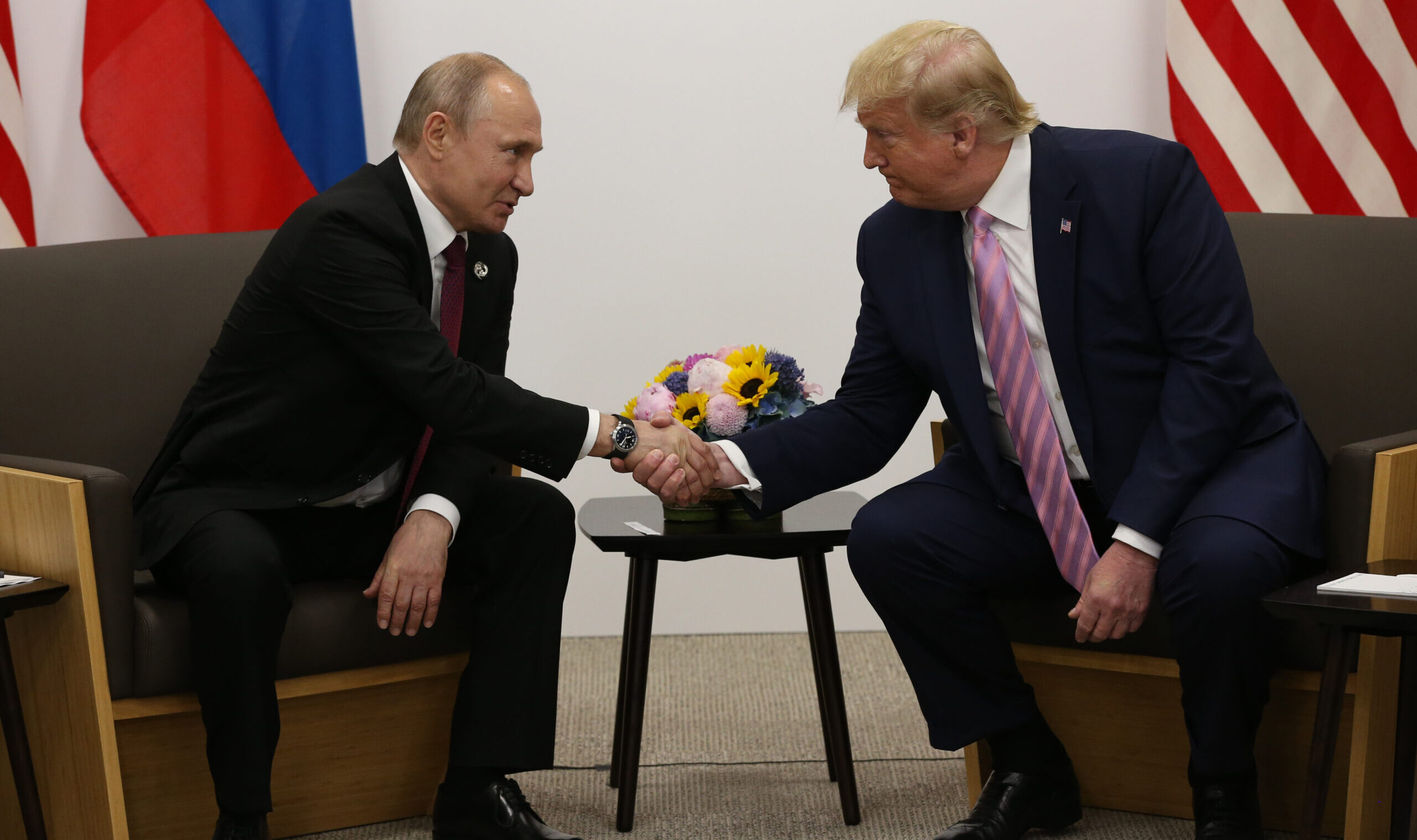


Loading the Elevenlabs Text to Speech AudioNative Player...
President Donald Trump’s Alaska summit with Russian President Vladimir Putin has the potential to restart the stalled diplomacy aimed at ending the war in Ukraine, but obstacles remain.
Russia continues to behave in ways that undermine confidence in any ceasefire that could result from the renewed talks. Putin’s maximalist demands could easily cause Ukraine’s President Volodymyr Zelensky to hold onto unrealistic positions on his own that won’t come to fruition during these negotiations or under the current conditions of the war.
Domestically, Trump will be under pressure to deliver a peace agreement that ignores Russia’s military gains in the war. (Though it is worth noting that even Sen. Lindsey Graham (R-SC) now concedes land swaps will need to be considered.)
Vice President J.D. Vance said the quiet part out loud on Sunday, albeit not for the first time. “We’re done with the funding of the Ukraine war business. We want to bring about a peaceful settlement to this thing,” he told Fox News’s Maria Bartiromo.
It’s true that Trump and Vance do not want to risk a direct military conflict with Russia or indefinitely fund Ukraine’s war efforts. This has been apparent since at least last year’s presidential campaign. While the fact has helped lure Putin to the bargaining table, it also convinces the Russian leader that he can potentially wait Trump out.
Unlike under the former President Joe Biden, U.S. aid to Ukraine now comes with an expiration date. We just don’t know when. (Though even the Biden administration privately acknowledged it wouldn’t go on forever.)
At the same time, it is clear that Trump genuinely wants Russia to stop its ongoing aggression against Ukraine. He did not simply come in and cut Ukraine off, as his hardest-core noninterventionist supporters would have preferred. He has even been willing to re-up armaments to Ukraine as Russia kept up its military offensive, consistent with his record of introducing lethal aid to Kiev during his first term.
The inability of many policymakers to see all this clearly and have a more realistic assessment of American interests in Ukraine is part of the damage done by the Trump-Russia scandal, which has since returned to the public eye thanks to Director of National Intelligence Tulsi Gabbard.
“I want to stop the killing,” has been Trump’s consistent refrain on the Russia–Ukraine war and is a clear motivator of his willingness to maintain such a large diplomatic role.
But it won’t be easy. A framework in which Russia retains some of its territorial gains and Ukraine largely keeps its wartime military build-up without a NATO membership will satisfy no one, even if it is the most plausible outcome.
Putin has yet to feel the same motivation to end the war. The promise of ending Russian military casualties, which Trump has regularly raised in the past, doesn’t appear to be sufficient for him. As long as Putin believes he can do better on the battlefield than the bargaining table, peace will be difficult to achieve. And as long as he sees saving face in Ukraine as essential to his regime, it will be difficult for Western moral suasion to prevail.
Trump should not be afraid to walk away from the negotiations if Putin is not ready to deal in good faith. The absence of any other parties willing to at least entertain Russian interests in the region gives Trump as much leverage as any future sanctions or actions against the Kremlin.
For the U.S. as much as anyone else involved, a bad deal—which for Washington would include an open-ended commitment to an endless proxy war—is worse than no deal at all.
The fact that Trump’s political opponents will remind him that he promised to end the Ukraine war within 24 hours if he returned to power shouldn’t change this calculus.
In all likelihood, the best case scenario is that Trump leaves Alaska with a real commitment from Putin to keep talking rather than any grand bargain. Campaign rhetoric aside, successful Russia–Ukraine diplomacy will take time. We are still much closer to the beginning than to the end.
The Trump administration appears to understand this, given White House press secretary’s characterization of the summit as a “listening exercise.”
“Only one party that is involved in the war is going to be present,” Leavitt told reporters, “and so this is for the president to go and get a better understanding of how we can hopefully bring this war to an end.”
Any progress whatsoever would still rank among the biggest accomplishments of Trump’s second term.
